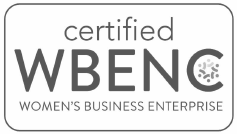For many for-profit and non-profit entities, RFPs (requests for proposals) are a way of business. In some instances, funding for marketing, PR and graphic design is contingent upon securing more than one bid on a project.
While securing multiple bids can be a time-intensive process, ensuring you are securing estimates that will allow you to make an apples-to-apples comparison of costs and services can make the process a bit easier. And, that starts with writing a strong RFP. Here are the core components of a marketing RFP:
I. Project Summary
Think who you are and what you do coupled with the goals you are looking for a PR/marketing partner to help you achieve. The project summary is a basic overview that helps to tee up the remainder of the RFP. Focus on writing a clear, concise summary that will be easy for prospective bidders to digest. One or two paragraphs will suffice.
II. Bidder Requirements
Get the technical “stuff” out of the way up front. What certifications and accreditations are your prospective partners required to hold? What policies must their company have in place? What supplemental paperwork does your organization require bidders to submit with their RFP response?
III. Scope of Services
With a basic overview in place and the technical stuff out of the way, it’s time to focus on the heart of the marketing RFP – the scope of services. Simply put, what services are you looking for a PR/marketing partner to execute? This can run the gamut from developing a new logo and brand identity, to designing a website and associated marketing collateral, to implementing a PR and social media program. And, this list is by no means exhaustive.
Regardless of the services which you are seeking the support of a PR/marketing partner, crafting a clear and concise scope is key. Clarity both ensures you will get back proposals that are tailored to meet your needs and ensures bidders’ proposals are based on a comparable suite of services. So, how does one ensure their scope of services is perfectly clear? Start by following these key tips:
- Be as specific as possible
- Clearly identify what in-house resources are being allocated to support the project
- Tie services to goals
- Make the outcomes measurable
- Identify what programs/systems the bidder must use or integrate their solution with
- Note any project partners with whom the chosen firm will need to collaborate along with their specific role(s) in the project
IV. About Your Agency Partner and Team
Now that you’ve outlined the scope of work, you’ll want to learn about the team who will be executing the work. Ask bidders to include bios of all team members who will be working on your account, including their most relevant work experience. You’ll also want each team member’s role to be detailed in the RFP – who is the lead, who is the day-to-day contact, who is responsible for project management, etc.
Lastly, you will also want to learn a bit about the agency’s history and their relevant work experience. Asking for inclusion of a representative client list, relevant case studies and references can help you become better acquainted with your prospective marketing partner.
V. Project Timeline
What is your timeline for receiving and reviewing proposals? When do you plan to award a contract? What steps will the process entail? Are you having a period during which bidding firms can submit questions? Are you requiring bidders to first submit a letter of intent? Will you be bringing firms in for in-person interviews during a set period of time? What deadlines will your PR/marketing partner need to meet once engaged?
It seems like a lot of questions, right? The good news is that the more questions you anticipate and proactively answer within the actual RFP, the fewer questions you will likely have to field from prospective bidders during the process. Letting bidders know what to expect also allows the overall proposal procurement process to flow more smoothly. Lastly, it helps manage firms’ expectations of the process and ensures their ability to meet these important deadlines.
VI. Budget
How much money are you willing to allocate to this marketing project/initiative? While you may be hesitant to provide a budget initially, it is an important part of the RFP. Why? First and foremost, it ensures you don’t spend time sifting through a sea of proposals that you can’t afford. Second, it ensures agencies who are bidding on the project feel confident they can achieve your goals within the budget you have outlined.
Here are a few things you’ll want to note regarding the budget – depending on the scope of the RFP, of course:
- Are funds for media buys included in the overall budget provided?
- Are there any co-op dollars or matching funds available to support media buys?
- Is the budget provided inclusive of any software fees, etc. needed to implement the program?
- Is there a budget for program maintenance following the initial contract period?
VII. Evaluation Criteria
How will you identify the winning firm? Against what metrics will you be scoring the marketing proposals that you receive? Are there percentage weights that will be applied to various components of the bidders’ proposals? Sharing your evaluation criteria within the RFP allows bidders to focus on the components that are most important to you and further provides a baseline for evaluating the bids you receive against one another.
While developing a PR/marketing RFP and reviewing the submitted proposals can be a time-intensive process, ensuring you are receiving proposals that speak specifically to your needs and allow you to make an apples-to-apples comparison amongst bidders will not only allow the process to run smoothly, but ensure that you choose the firm that is best positioned to meet your needs.

